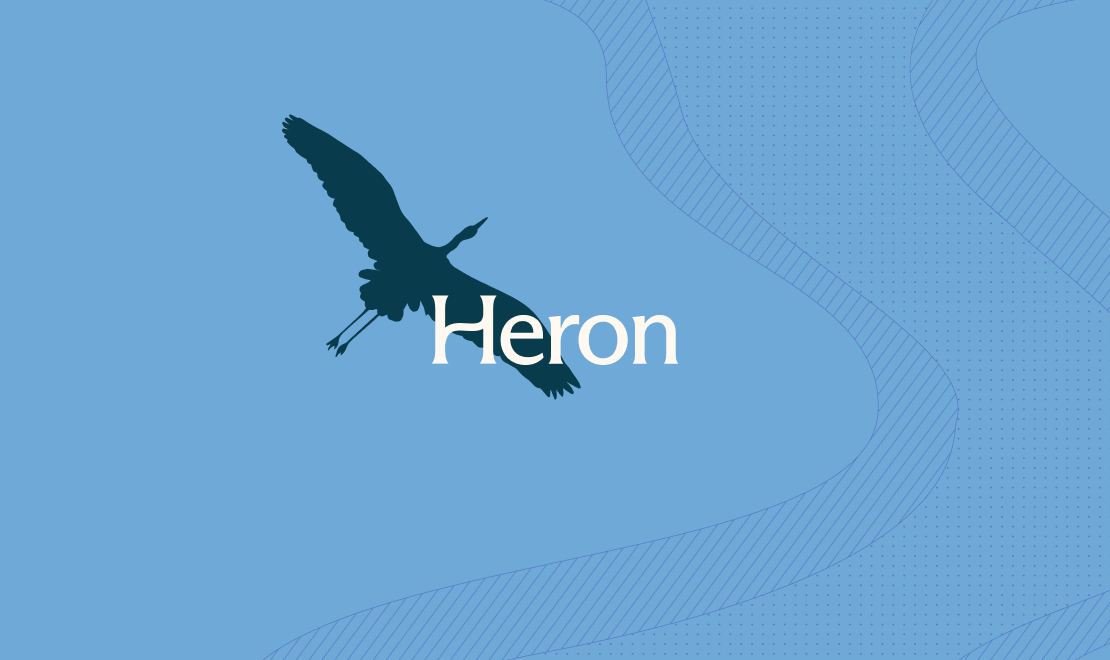Understanding Collateral: Private Credit’s Safety Net
Collateral is a key foundation underpinning private credit transactions. Learn the difference between tangible and intangible assets, secured and unsecured loans, and why Heron Finance only invests in secured private credit loans.

Imagine you're lending a friend a significant amount of money. To ease your mind, you ask your friend to leave you something of value—a watch, a piece of jewelry, or even their car—as a guarantee they'll pay you back. This item is your safety net, ensuring that if your friend can't return the cash, you won't be left empty-handed.
This is the essence of collateral in the financial world, a concept that–while more complex than your friend leaving you something of value–follows the same basic principle of securing a loan with an asset.
In the realm of private credit investment, understanding the role of collateral is akin to knowing the rules of the road before getting behind the wheel. It's a fundamental aspect that not only protects the lender, but also provides a structured pathway for the borrower to access necessary funds. The importance of collateral cannot be overstressed, as it forms the bedrock of trust and security in an otherwise uncertain investment landscape.
In this article, we'll delve into the intricacies of collateral within private credit investments. We'll explore the types of collateral assets, their role in safeguarding investments, and the critical process of valuation and maintenance.
Key Highlights
- Collateral provides a safety net for lenders, mitigating financial losses in case of borrower default
- Different types of collateral offer unique advantages and challenges, influencing lenders' risk management strategies
- Investing in secured loans backed by collateral are a prudent choice for private credit investors seeking to mitigate risk
What is Collateral?
When a borrower pledges an asset to secure a loan, that asset is considered collateral. Pledging collateral provides a layer of protection for lenders, as it safeguards their investment in the event of a default, ensuring that investors have a tangible asset to take control of and liquidate, in order to recoup some or all of their initial investment.
In private credit, certain tangible assets are highly regarded as collateral due to their ability to appreciate with inflation, offering a hedge against the diminishing value of money over time. Many tangible assets are also liquid, which increases the likelihood that a lender would be able to sell the asset if the borrower defaults. Some of these assets include:
- Real estate
- Commodities
- Alternative assets such as collectibles or artwork
- Plant, property and equipment (PP&E)
Private credit lenders regard tangible assets highly because they tend to appreciate in value over time. So if the borrower defaults many years down the road, lenders are more comfortable taking control of a tangible asset that is likely to increase in value.
Many lenders also accept less tangible (or even intangible) assets as collateral. For example:
- Inventory
- Accounts receivable
- Copyright / IP claim
- Personal guarantee from a wealthy benefactor
Ultimately, it is up to the lender to decide what is an acceptable form of collateral (some lenders may be comfortable with certain assets, while others consider those same assets off limits). Lenders will also determine the value of the underlying collateral, which helps further determine how much they are willing to loan to the borrower (of course, borrowers can–and often do–quibble with a lender’s asset valuations. This is where negotiations take place).
The Role of Collateral
Collateral is a key risk management tool in commercial lending, providing lenders with a form of protection should borrowers fail to meet their loan obligations. It is particularly significant in private credit, where the stakes are high and investments are often illiquid.
Collateral acts as a safety net for investors, ensuring that there is a process in place for recouping some (or all) of the investment, should the business default on its loan obligation.
In essence, collateral in private credit investment is not merely an asset, but a strategic mechanism that instills confidence and security for investors.
High-value collateral can therefore result in more advantageous terms for the borrower, such as reduced interest rates or increased loan amounts. On the other hand, lower-valued collateral might lead to more stringent conditions or the need for additional security.[1]
As a result, the valuation and management of collateral are essential to ensure the assets retain their worth. Regular appraisals and market assessments are conducted to ensure the collateral's value is in line with prevailing market conditions.
Secured vs. Unsecured Loans
Secured loans are loans that are backed by collateral, while unsecured loans offer no collateral protection. It should go without saying that secured loans offer an added layer of protection and higher likelihood of investment recovery in the event of a borrower's default than do unsecured loans.
Investors with secured loans are generally prioritized during liquidation, increasing the chances of recovering their principal investment. Additionally, these loans often include an illiquidity premium, compensating investors for the reduced liquidity compared to public debt and providing a cushion against potential risks.
On the contrary, unsecured loans offer a greater degree of risk–in economic downturns or borrower defaults, the absence of an asset to liquidate means investors may incur significant losses.[2]
For this reason, Heron Finance only invests in secured loans.
Our expert credit team ensures that every loan we invest in is backed by collateral that is valued at 100% or more of the loan amount. In other words, all loans we invest in are secured against assets that, if liquidated, should provide at least 100% (sometimes more than 100%) of the total loan amount.
Our credit team has decades of experience in the private credit markets, having originated and structured over $4 billion of private credit investments. For more information, check out our About page.
And if you’re an accredited investor, you can get started investing in secured loans today. Click the link below to set up your Heron Finance account.




